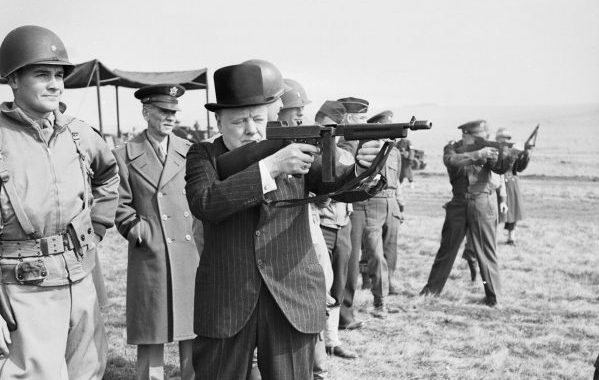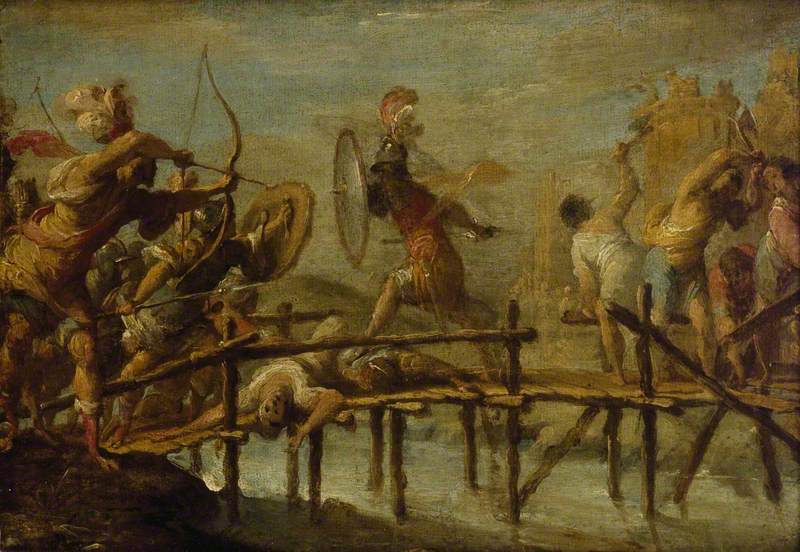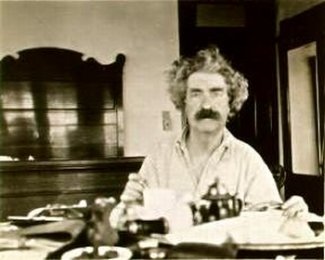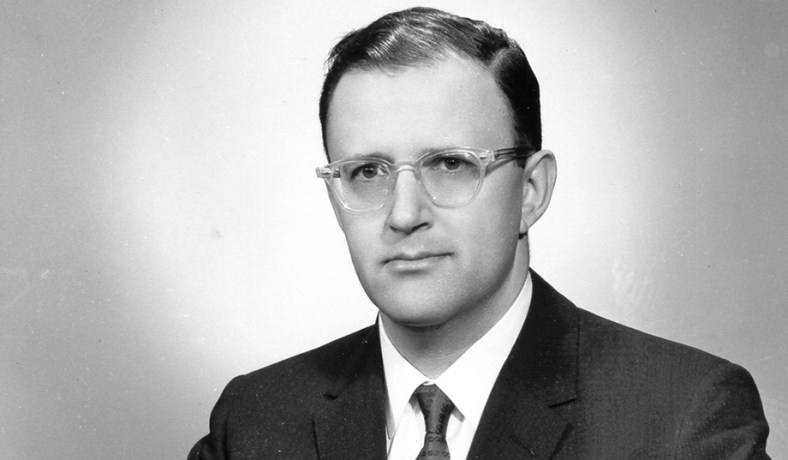Vitalist conservatism has more to offer than its critics let on.
Do We Have the Political Will to Live?

The ineffectual truth of philosophy won’t save America.
A year before the British surrender at Yorktown, John Adams wrote to his wife Abigail: “I must study Politicks and War that my sons may have liberty to study Mathematicks and Philosophy.” It’s a simple point: times defined by the former are not times defined by the latter.
C. Bradley Thompson understandably desires that Americans “rediscover the philosophy of Americanism,” the philosophy—at least as he understands it—of the American Founding. What Thompson misunderstands, though, is that ours are once again times of war and politics; no mere philosophy can save us now.
Americans of the founders’ age could realize the founders’ philosophy because their character and customs were ingrained with habits that best comported with self-government. Ours were a robust people, formed by the ruggedness of the frontier and the experience of hard-fought struggles for liberty that stretched back generations to England.
First and foremost, though, they were a people filled with a strong political will to govern themselves.
Any revitalization of the philosophy of the American Founding must follow—not precede—a new reassertion of that political will, sine qua non. This is a job of the highest order for statesmen with the greatest talent.
Those whom Thompson criticizes in his article attempt to change public opinion by means other than philosophic enlightenment. The purveyors of the 1619 Project, Deneen, and Ahmari are trying to change the status quo by disrupting the traditional narrative of the American Founding. Bronze Age Pervert, among other things, is trying to awaken an attraction for vitalism, based on the assumption that nature—in some sense at least—is an objective standard that people will be more likely to believe in and submit to if they can again see it in a glorious or beautiful form.
Mere cerebral assent to an abstraction may be enough to inspire philosopher kings, but not human beings. Thompson should recognize that these are attempts—for good or ill—to reawaken our languid political will. He may not like the proposed remedies, but he should recognize the legitimacy of the diagnosis.
As Abraham Lincoln said in the beginning of his House Divided speech: “If we could first know where we are, and whither we are tending, we could better judge what to do, and how to do it.” So, what is the state of our political will today, and whither is it tending?
An Inversion of Political Will
As was evident during the Cold War, it’s easier to understand the state of political will in our nation in relation to our greatest threat than it is to understand it simply in the abstract.
I believe our greatest foreign threat today is China, with whom we are entering a second cold war. In this regard, two troubling trends have been long converging. Now they have come to a head. On the one hand—as in all previous empires—prosperity has had a dire effect on Americans’ political will to maintain the self-governing virtues that are the pillars of our regime. For example, even if they quibble over the details of its yearly budget and management style, most Americans accept the underlying assumptions of the entitlement-administrative state and the legitimacy of all the intrusions into our liberties that that Leviathan apparatus requires. Furthermore, at least before 2016, most “conservatives” could make no moral argument whatsoever against the demand for open borders.
On the other hand, the power and political will of the Communist Party of China has steadily increased. For example, consider the will required to enact atrocities on the scale of those we have witnessed in Xinjiang province against the Uighur population, or to implement an invasive and inescapable social credit system for all subjects nationwide. Consider also China’s recent escalation of measures destroying the autonomy of Hong Kong , and its military exercises on Hainan Island, openly touted as a practice invasion of Taiwan.
In both these cases, we’ve forgotten that regimes are ultimately moral paradigms, not mere pragmatic political structures. Accordingly, the U.S. has lost all confidence in the goodness of its regime and given the CPC global legitimacy and access to the best fruits of free society in the naïve hope that China would become more democratic at home and more friendly abroad.
With respect to political will, we have decreased, and the CPC has increased.
The CPC is not interested merely in free trade and mutual economic benefit with the U.S. It is interested, rather, in using us in any way we’ll let it in order to secure its rule better at home and to dominate more effectively its region abroad.
These trends now place the U.S. in a desperately weak position by diminishing our prestige and by tempting the hubris of the CPC.
In order to reverse these trends, we must somehow regain confidence in the goodness of our regime and political way of life. Only then is there even a chance to restore reverence for the philosophy of the American Founding as Thompson wishes.
Rebuilding our foreign policy and confidence in our regime will take time. While we wait, we must maintain overwhelming military and technological superiority in order to deter war. It is imperative, in other words, that we maintain might in order to rebuild a regime based on what we believe is right.
Savrola’s Maxims
Winston Churchill has something important to say on this point. In his underappreciated political novel, Savrola, published in 1900, Churchill describes the nature of the relationship between might and right. His insight illumines a key feature of the current relationship between the U.S. and China.
The novel’s hero, Savrola, claims that nations rise to a high level of civilization—which he defines as “a state of society where moral force begins to escape from the tyranny of physical forces”—by means of “higher ideals” on account of their “superior buoyancy.”
This civilizational triumph over the forces of despotism, though, is never permanent. In fact, Savrola points out that ancient civilizations often grew soft and effete as a result of their victories, leaving their young men unable to wield the swords of their grandfathers effectively against an evil but resolute enemy. Moral strength alone, garnered from high ideals but empty of political will, is no match for physical strength and real determination.
But modern civilization has a secret source of staying power that the ancients did not have: “we have other weapons,” Savrola explains. Churchill wrote this after witnessing a few Maxim machine guns completely destroy a charge of 8,000 Muslim Dervishes armed with spears and rifles at the Battle of Omdurman. Not a single Dervish came within 50 yards of the British trench.
With deep irony and ambivalence, Savrola laments, “When we have degenerated, as we must eventually degenerate…. Our morals will be gone, but our maxims will remain.” Grand, philosophic maxims, in the mouths of a degenerate and effete people, are worthless. Such people had better maintain technological superiority over their enemies if they would maintain their freedom.
What happens, though, when—from a lack of political will—we let our enemies steal our Maxim-gun technology and have other nations build them for us? We give up the only means of maintaining our civilization, even if we’ve already lost the moral character by which we might deserve that superiority. Again, no revival of “correct” philosophy will save us.
Mass Effects and Individual Glory
How did this happen to us? In “Mass Effects in Modern Life,” written in 1925, Churchill proposes an explanation. The immense field of human choice, formerly held by men ambitious for glory, has been abandoned. It has been replaced, gradually, and with a sense of inevitability, with mirages of mass effects, like the supposedly inevitable march toward globalism. Our elites have given up command of the field, and the Chinese have stealthily taken it.
Churchill writes, “In no field of man’s activities is the tendency to mass effects and the suppression of the individual more evident than in modern war.” Great men have sought out other fields in which to display their virtues.
Almost fifty years earlier, Nietzsche foresaw this same trend. He could imagine a day, he wrote in The Gay Science, when the nobility would exchange “war and politics” for business as a challenging sport. Likewise, he noted, the vulgar would then take up that abandoned field and vulgarize it, what Nietzsche described as a “prostitution of the spirit.”
This comment explains why our businessmen are more famous than our generals. Athens had Pericles and Demosthenes; we have Bezos and Zuckerberg.
Consider the influence that the former had through their speeches on the political will of the Athenians, convincing them to believe in the goodness of their regime and to defend it from military threats, one from Sparta, the other from Philip of Macedon.
By contrast, many among us who might otherwise have been drawn to the helm of the ship of state and to the heights of military prowess have sought to slake their thirst for glory in the field of international business. And their conquests have included the military advantages of their own country.
In an era of mass effects—like the era of drone warfare—there seems to be less glory for individuals to win, for there seems to be a smaller field of choice upon which to act. But this is only an illusion.
In fact, the glory to be won today is as great as the size of the threat we face. And that glory is free for the taking by those bold enough to expose their ambition to public opinion.
What we need now, to quote Senator Marco Rubio, is “less philosophers” and more leaders with ambition and talent in the fields of politics and war sufficient to inspire Americans to exert their political will again, to own and govern their space, and to make themselves—if they will—into a noble people worthy of their dominion.
The American Mind presents a range of perspectives. Views are writers’ own and do not necessarily represent those of The Claremont Institute.
The American Mind is a publication of the Claremont Institute, a non-profit 501(c)(3) organization, dedicated to restoring the principles of the American Founding to their rightful, preeminent authority in our national life. Interested in supporting our work? Gifts to the Claremont Institute are tax-deductible.
America once recognized the common—and highest—good.
There there, Pepe—it’s gonna be O.K.
No perceptivity, no public-mindedness, no plan.
We are inclined, but not fated, to decadence.
On C. Bradley Thompson and Harry V. Jaffa.






